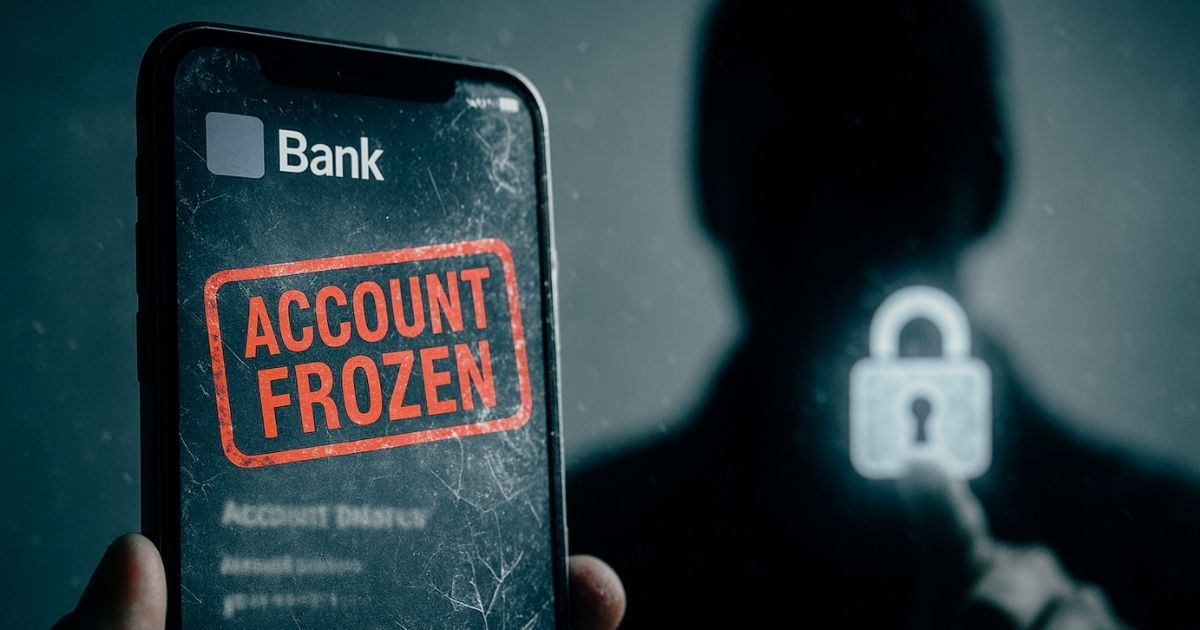Debt Management · 4 min read
Can a Garnishee Order Freeze Your Bank Account in India?
Learn how garnishee orders work in India, how they can freeze your bank account or salary, and the legal steps you can take to protect yourself.

If you’ve ever worried that your salary account might suddenly get frozen because of unpaid loans or credit card dues, you’ve probably heard the term garnishee order. The phrase sounds heavy, but let’s break it down simply.
1. What Exactly Is a Garnishee Order?
A garnishee order is not just a banker’s decision. It’s a court’s instruction to your bank, telling it to hold or release money to recover your dues. Think of it like this: the court is whispering to your bank manager, “Don’t let this person freely touch his money until we decide how much is owed.”
Recovery agents can’t just do this on their own, no matter how aggressive they act.
2. Why Do Banks Go for Such Orders?
Banks don’t jump to garnishee orders on day one. Usually, it happens after:
The loan or credit card bills remain unpaid for months.
Repeated calls, reminders, and even settlement talks fail.
The bank already has a court case, and the court supports their side.
In short: it’s the last card they play, saying, “We tried everything, now let’s go legal.”
3. The Real Impact on Your Money
This is where it hurts. Once the order reaches your bank:
Your account may be frozen fully or partly.
If it’s your salary account, a chunk of your paycheck might go straight to the lender.
You’re usually left with some money to survive, but honestly, it stings when half your salary disappears overnight.
4. What Should You Do If You Get One?
First rule: don’t pretend it will go away. It won’t.
Instead:
Double-check who filed it and how much they’re asking for.
Match it with your own loan records—sometimes banks make errors.
If it’s about your salary, inform your HR, because they’ll be contacted anyway.
Collect proof of past repayments or settlement letters. These become your shield.
5. Can You Fight Back Legally?
Yes, absolutely. Courts don’t mind if you raise objections. Grounds include:
The amount shown is inflated or wrong.
You’ve already paid, but the bank hasn’t updated records.
The order is targeting an account with pension or protected income, which is illegal.
For this, you (or better, your lawyer) need to file an objection before the same court. You may not always get the order canceled, but you can reduce or restructure its impact.
6. Avoiding a Garnishee Order in the First Place
The smartest move is to act before things hit the courtroom. Options include:
Talking to your bank and settling for a lower amount.
Asking for loan restructuring, so you pay smaller EMIs.
Consulting a debt advisor—especially if multiple loans are piling up.
Once it’s in the court’s hands, your bargaining power shrinks fast.
Conclusion
A garnishee order isn’t the end of the road. Yes, it can freeze your account or cut your salary, but with the right steps—quick verification, collecting records, and timely legal help—you can manage or even challenge it. The real key is not waiting until it’s too late.
FAQs
Q1. What is a garnishee order in India?
It is a court order allowing creditors to recover unpaid dues directly from a borrower’s bank account or salary.
Q2. Can a bank freeze my account without a court order?
No. Banks require a garnishee order from the court. Recovery agents or bank staff cannot freeze your account.
Q3. How long does a garnishee order last?
It remains in effect until the debt is recovered or the court modifies/vacates the order.
Q4. Can pension or retirement funds be attached under a garnishee order?
No, pensions and certain exempt funds cannot be attached. You can challenge such wrongful attachment in court.
Q5. How can I challenge a garnishee order?
By filing an objection before the same court, citing errors in the debt amount, prior payments, or attachment of exempt accounts.
Q6. How can I prevent a garnishee order?
Negotiate with your bank early, restructure loans into EMIs, or seek debt advisory services before the case reaches court.


 (Lawyerpanel)Facing Loan Trouble_ Master the Loan Resolution Process Today.B14DtbSm.jpg)
